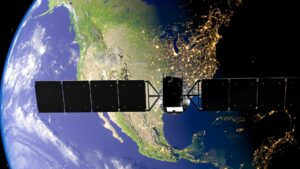Securing the Future: Space Force’s Resilient Global Positioning System Program
The Global Positioning System (GPS) has become an integral part of our daily lives, with an estimated economic benefit of over $1.4 trillion. However, with the potential economic impact of $1 billion a day in the event of an outage, the U.S. Space Force is not taking any chances.
The Importance of R-GPS
The Resilient Global Positioning System (R-GPS) program, with a budget of approximately $2 billion, aims to provide a backup network for the current GPS system. The need for an alternative system has become crucial, given the reliance on GPS for a wide range of activities, from financial transactions to military operations.
Commercial Collaboration for a Resilient Future
To build the R-GPS network, the Space Force has turned to the commercial space industry. Recently, four companies, including Astranis, were awarded contracts to design concepts for the R-GPS program.
Astranis’ Expansion into PNT Services
For Astranis, a startup known for its satellite internet services, the R-GPS program represents an opportunity to expand into the market for positioning, navigation, and timing (PNT) services. With the introduction of its Nexus product line of PNT satellites, Astranis is gearing up to play a significant role in the R-GPS program.
A Multi-Billion Dollar Opportunity
As the Space Force plans to deploy a full constellation of at least two dozen R-GPS satellites, Astranis sees this as a multi-billion dollar opportunity. With a track record of successful satellite launches and a strong focus on innovation, Astranis is well-positioned to be a key player in the R-GPS program.
Rapid Progress with Quick Start Funding
Utilizing the "Quick Start" funding authority, the Space Force has made significant progress in a short period with the R-GPS program. The quick approvals, market research, and contract awards demonstrate a level of speed and efficiency previously unseen in space programs.
Looking Ahead
With plans to deploy the R-GPS satellites in batches of eight, the Space Force aims to have the first set launched as soon as 2028. As companies move into the construction stages of the program, the focus will be on building a resilient and secure alternative to the existing GPS system.
Stay tuned to Extreme Investor Network for more updates on space industry developments and investment opportunities. Subscribe to our newsletter to stay informed about the latest trends and insights in the world of business news.

